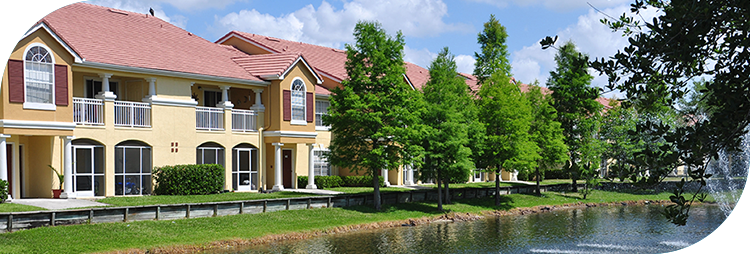 |
 |
In This Issue Yardi News Client News Hankin Group Realizes Revenue Growth with Yardi RENTmaximizer Kaftan Communities Repositions and Creates Value Client in Focus Product & Technology News Yardi Introduces RENTCafé Classifieds Industry Trends Property Prep: Climate Change Readiness Passive Retention: Maximizing Landscaping Lead Tracking and SEO: What You Need to Know Events ContactYardi Systems Sales: 800-866-1144 |
Property Prep: Climate Change ReadinessBy Keat Foong
Floods. Droughts. High winds. Fires. Record snow. Like it or not, encounters with extreme and unexpected weather conditions may be increasingly a fact of life for apartment managers. Accordingly, the reality of climate change may have modified property management procedures—or at least reinforced the critical importance of existing practices. Such best practices are prudent responses on the part of property managers to global warming. According to the Environmental Protection Agency, the average temperature has increased by 1.4°F over the past century. And it is projected to rise another 2 to 11.5°F in the next hundred years. These temperature changes may appear small, but they can translate to large shifts in climate patterns and are said to have caused the unconventional weather currently being experienced. Many managers have already been shaped by their experiences of recent inclement precipitation or temperatures. More than ever before, apartment managers today need to "anticipate the unanticipated," agrees Jim Cunningham, COO at Marquette Companies. "They need to look at every community and consider the possibility at that property of flooding, excess snow on roofs, or extreme cold that might not have been such large concerns in the past." Property managers are now taking steps to stock up on spare parts and other supplies, re-locate or seal sensitive HVAC systems, make sure communications systems are in place, or sign top-priority agreements with first respondents in advance. Ultimately, the reality of climate change may push up the risk profile of assets. "Climate change to us deals a lot with an increase in the volatility of the operations," adds Ryan Moorhead, senior asset manager at Olshan Properties. Many properties including Olshan are paying attention to risk insurance. "A major focus for us that we constantly evaluate is mitigating risk and our overall exposure." In New York City, Hurricane Sandy was the second hurricane to make landfall in as many years. Among the key lessons of such disasters is that buildings have to be prepped for disasters far in advance. "It is hard to prepare the building on 24 hours' notice," says Dan Wurtzel, president of FirstService Residential New York. Every Spring and Fall, FirstService Residential's standard property management procedure is to gear up on an ample supply of emergency supplies. Besides checking off equipment such as sandbags, properties may also do well to be stocked with cots, bottled water, energy bars, and other emergency supplies for onsite staff, says Wurtzel. Education of staff—and residents—is another key area of advance readiness. "That is important because if residents are prepared, it is a huge help to us in ensuring that they are safe," Wurtzel points out. Residents need to be informed about what to do in the event of emergencies, and how to prepare for them. Emergency procedure guides should be posted online. Another lesson often driven home by natural disasters is that companies need to account for the fact that communications could be disabled. After Hurricane Sandy, everything south of 40th Street in New York City lost power, says Wurtzel. "If there is no power, how do you get the word out?" FirstService Residential employs an operating platform system called FSR Connect, which enables property managers and residents to communicate from any location. Marquette Cos. had a significant experience with weather change in April 2013, when unprecedented flooding hit a high-rise, the 476- unit Towers at Four Lakes, Lisle, Ill., that it managed. The tower lost power, and more than 500 residents were displaced, because the electrical system located in the basement was inundated by water. The property in Chicago was out of service for two months straight while temporary power, and new electrical switch gears, were installed. Marquette Cos. worked to seal the electrical vaults and modify the drainage system in the basement. "It is rarely the situation in the business that not one of your tenants will be able to live in an apartment," says Cunningham. "You have to be more proactive than in the past. You have to think about where the electrical vaults are, and how to protect those vaults or limit or inhibit the ability of water to get in there." |
 |
|
| United States | Canada | Europe | Asia | Australia |  |
Yardi Systems 430 S. Fairview Avenue Santa Barbara, CA 93117 United States |
